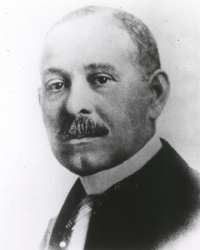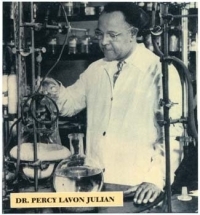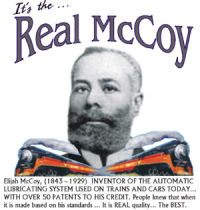America might be on the pinnacle of a great change--namely having the first black President of the United States. The democratic primary race is still competitive between Hillary Clinton and Barack Obama. I was just in Washington, DC, over the President’s Day weekend and it was truly inspiring to see the support for Mr. Obama amongst people who before were apathetic to the political system. One friend felt that for the first time she was “not just voting for the lesser of two evils.” Yet, inspiring change is not uncommon in African American history. In continuance of the Famous African American Scientists blog in January, below are three more noteworthy and prominent African American pioneers in science and technology. Although their names might not be famous, their work continues to mold the way we live our lives today.

Dr. Daniel Hale Williams (1856 – 1931)
Physician
Williams was born in Pennsylvania. He helped support his family after his father died when he was nine. At first, he worked as a shoemaker’s apprentice. Then as a teenager, he learned to cut hair and became a barber. While working as a barber, he met Dr. Henry Palmer, who later became the Surgeon General of Wisconsin. Dr. Palmer took Daniel on as a medical apprentice; and helped him gain acceptance to medical school. Dr. Daniel Hale Williams graduated with his medical degree in 1883. Disillusioned with the second-class care for African Americans, he founded the Provident Hospital in Chicago in 1891, the first African American-owned hospital in the United States. He made history at Provident Hospital by performing the first successful open heart surgery in 1893. His patient James Cornish, injured from a knife wound, fully recovered and lived for another twenty years.

Percy L. Julian (1899 – 1975)
Chemist
Alabama-born Julian held a bachelor's degree from DePauw University. He was unable to procure a chemistry Ph.D. from Harvard University because of discrimination, and left after receiving a master's degree. He later received a Ph.D. from the University of Vienna in 1931. He became a pioneer in the chemical synthesis of medicinal drugs from plants. He gained over 130 chemical patents in his lifetime. The most notable patent was for the production of cortisone. For his contributions to medicine, he became the fist African American chemist inducted in the National Academy of Sciences.

Elijah McCoy (1844 – 1929)
Inventor
The son of escaped slaves from Kentucky, McCoy was born in Canada and educated in Scotland. Settling in Detroit, Michigan, he invented a lubricator for steam engines. It was patented in 1872. Lubricators were a boon for railroads. Trains could run faster with less need to stop for lubrication and maintenance, thus improving profit lines. McCoy improved on the lubricator design over his lifetime as well as amassing over 50 other patents. Lacking the revenue to manufacture his own lubricators, he sold the patents to employers until 1920 when he was able to open Elijah McCoy Manufacturing Company. It is still disputed today if the phrase “The real McCoy” was derived to compare McCoy lubricators to generic and inferior copies.
![]() Cat Aboudara is the Special Projects Manager at California Academy of Sciences and works in the public programs division. The Academy is a wonderful fit for her because of her curiosity about the natural world and her experience in working with native California wildlife.
Cat Aboudara is the Special Projects Manager at California Academy of Sciences and works in the public programs division. The Academy is a wonderful fit for her because of her curiosity about the natural world and her experience in working with native California wildlife.
